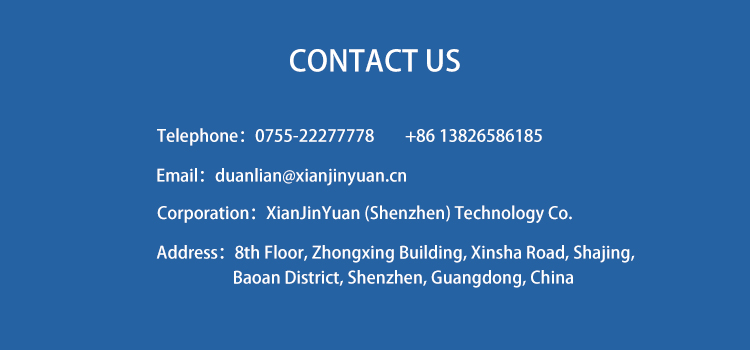

Hotline:0755-22277778
Tel:0755-22277778
Mobile:13826586185(Mr.Duan)
Fax:0755-22277776
E-mail:duanlian@xianjinyuan.cn
1、 Introduction
With the continuous development of technology,Shielding materialPlaying an increasingly important role in our daily lives. Shielding materials play a crucial role in both electronic devices and building insulation. However, faced with the dazzling array of shielding materials on the market, people often find it difficult to choose materials that suit their needs. This article will focus on the selection of shielding materials and conduct in-depth analysis from multiple dimensions to help target readers solve the problem of selection.
2、 Types and characteristics of shielding materials
1. Metal shielding material
Metal shielding materialIt is the most common type of shielding material, including aluminum, copper, steel, etc. This type of material has good electromagnetic shielding and conductivity properties, and is suitable for electromagnetic wave shielding and electrostatic shielding. They can effectively block the propagation of electromagnetic waves and reduce electromagnetic interference.
2. Conductive polymer materials
Conductive polymer materials have good conductivity and corrosion resistance, and can play a good role in electromagnetic shielding. Compared to metal materials, conductive polymer materials are lighter, softer, and easier to process and shape.
3. Inorganic materials
Inorganic materials mainly include ceramics, glass, etc. These materials have excellent insulation properties and high temperature resistance, making them suitable for shielding needs in high-temperature environments.
4. Carbon fiber material
Carbon fiber material is a lightweight, high-strength, and highly conductive shielding material widely used in aerospace, automotive, and other fields. Its excellent conductivity and high strength make it an ideal choice for electromagnetic wave shielding.
3、 Selection criteria for shielding materials
When choosing shielding materials, we should consider the following aspects:
1. Shielding performance
The shielding performance of different shielding materials varies. We should choose suitable shielding materials based on specific needs. For example, in electromagnetic wave shielding, metal shielding materials often have good shielding effects; In electrostatic shielding, conductive polymer materials are more suitable.
2. Physical performance
Physical properties include weight, flexibility, corrosion resistance, etc. In some fields with high weight requirements, such as aerospace, we should choose lightweight shielding materials, such as carbon fiber materials; In some applications that require flexibility, such as electronic devices, conductive polymer materials are more suitable.
3. Cost
Cost is a factor that we must consider when choosing shielding materials. Metal shielding materials are relatively expensive, but their shielding performance is superior; Conductive polymer materials are relatively inexpensive, but their performance may not be as good as metal materials. Therefore, when formulating a budget, we should make reasonable choices based on the actual situation.
4、 Case analysis
1. Electronic device shielding
Taking smartphones as an example, the internal circuitry of the phone needs to be affectedElectromagnetic wave shieldingTo prevent electromagnetic interference from affecting the performance of mobile phones. At this point, we can choose conductive polymer materials as the material for the phone case, whose flexibility and conductivity can meet the requirements of electromagnetic wave shielding.
2. Building sound insulation and thermal insulation
Sound insulation and heat preservation are important requirements in buildings. We can choose inorganic materials such as ceramics, glass, etc. as insulation layer materials, whose insulation performance and high temperature resistance can effectively isolate heat and noise.
5、 Conclusion
In today's crowded market for shielding materials, choosing the right materials is a task that cannot be ignored. This article analyzes the types and characteristics of shielding materials, proposes criteria for selecting shielding materials, and illustrates the application of different materials in different contexts through case studies. I hope this article can help target readers better choose shielding materials that are suitable for their needs.

Advanced Institute (Shenzhen) Technology Co., Ltd, © two thousand and twenty-onewww.avanzado.cn. All rights reservedGuangdong ICP No. 2021051947-1 © two thousand and twenty-onewww.xianjinyuan.cn. All rights reservedGuangdong ICP No. 2021051947-2